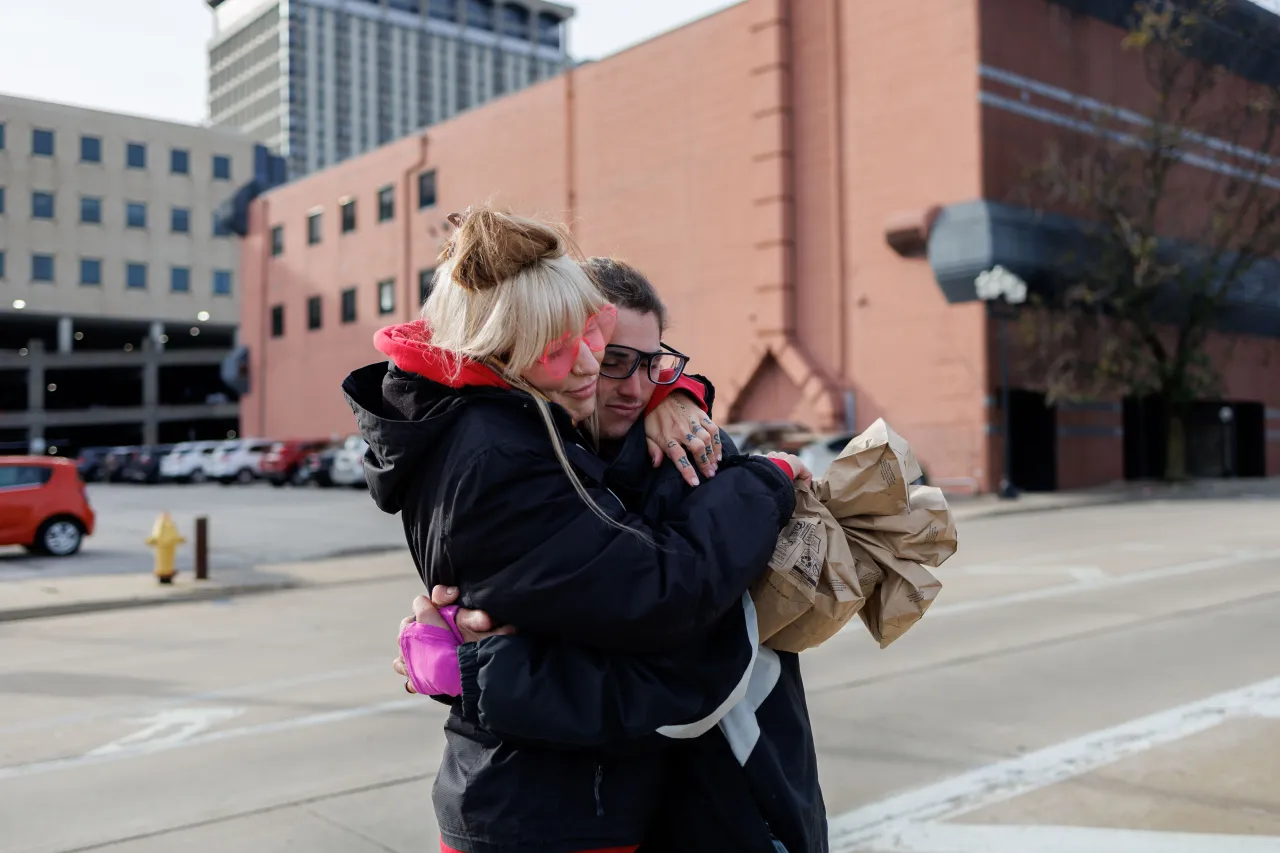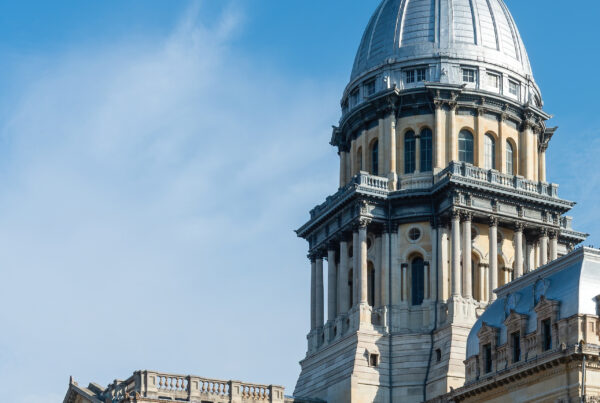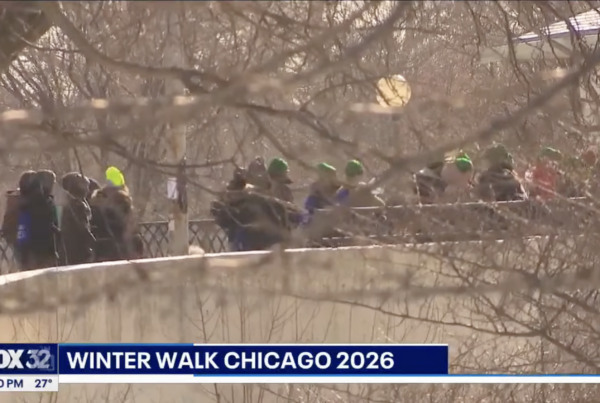The most talked-about neighborhood in Peoria still has its Halloween decorations up.
The festive decor — a pumpkin, a garland of orange leaves and a lantern with bat cutouts — is arranged on a chair outside one of the camping tents planted at the southern shoulder of the Dirksen Memorial Highway. About a dozen more tents hug the fence overlooking the highway.
Although living in the encampment can at times be perilous, Alyiah Samara said she’s found a community there and will fight to stay.
“If they remove me from here, I will put my tent right in front of them,” said Samara, 26. “If someone comes into your home, that’s what you would do, fighting for your home.”
Samara and her neighbors are facing warnings, fines and possible jail time after Peoria became the largest city in Illinois to penalize public camping on the heels of a U.S. Supreme Court decision earlier this summer that allowed municipalities to enforce bans on people sleeping outdoors.
The ordinance, narrowly passed by the Peoria City Council on Nov. 19, follows a wave of local governments in Illinois, from Mundelein to downstate Effingham and suburbs of Peoria like East Peoria and Pekin, that have passed similar measures as the state struggles with rising homelessness and an affordable housing shortage.
The Chicago Coalition to End Homelessness counts 21 Illinois municipalities so far that have penalized public camping, a trend that worries providers who say they’re being squeezed in their efforts to shelter and house people who have nowhere else to go.







